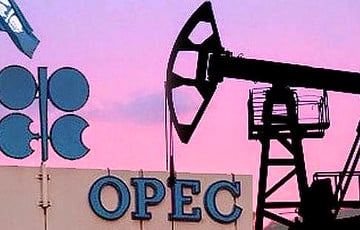The Picture Is Slender And Unambiguous
2- Mikhail Krutikhin
- 12.05.2025, 15:13
- 4,912

Why the Saudis are delaying the breakup of OPEC+.
For two months in a row, the key members of the OPEC+ alliance have decided to increase oil production beyond the limits they had previously restricted themselves to. The market is puzzled: supply has long exceeded demand, prices are moving downward under the influence of this fundamental factor, and the cartel, which by definition should restrain the flow of oil to consumers in the name of supporting prices, is acting in the opposite way...
It is appropriate here to recall the history of concerted actions of OPEC+ over the past few years - given that the average daily price of a barrel of brent oil since May 2022 has fallen from $120 to about $60.
The alliance intended to maintain a cumulative production cap of 3.7 million bpd from October 2022 through the end of 2025 in the form of quotas for each of the member countries. In addition, Saudi Arabia and its partners (Russia, Iraq, UAE, Kuwait, Kazakhstan, Algeria and Oman) voluntarily cut their average daily production by about 2.2 mb/d. Observers estimated the total amount of production curbs at 5.85 million barrels per day (5.7% of global production).
But in June 2024, these voluntary "cutbacks" announced that they would gradually increase production by about 180,000 barrels per day, taking away their cuts, until October 2025.
The G8 was not able to stick to this schedule of rather modest production increases for long. In March this year, it announced that it would increase supplies to the market not by 189,000, but by 411,000 barrels, and recently admitted that such an increase in production will continue in May and June.
The market immediately reacted by falling prices.
From the point of view of cartel strategy, such behavior cannot be explained. Leading oil-producing countries need relatively high oil prices to make ends meet in their national budgets. In Saudi Arabia, the budget deficit exceeded $16 billion in the first quarter.
Let's see what justifications oil and gas analysts offer for such behavior of the key OPEC+ members.
One opinion is that the Saudis are tired of the systematic exceeding of production quotas by such countries as Iraq and Kazakhstan, and have allegedly decided to "discipline" them financially, through the collapse of prices. As an option: the new schedule of quotas is designed to mask violations within OPEC+ and to give the volumes of Kazakh and Iraqi production some legitimacy: they produce as much as they should by agreement within the alliance.
Other analysts believed that the Saudis and their partners want to strike a blow to the American production of oil from shale rocks and force this oil out of the market, as it has a relatively high cost. They also - in contrast to their own opinion - suggest that the increase in production is done to please US President Donald Trump on the eve of his visit to the Arabian Peninsula.
In the media there were also other assumptions: compensation for the future decline in production in Iran and Russia under the impact of sanctions, the fight against the global economic crisis, and even an attempt to delay the electric car fleet of the world.
The seemingly illogical actions of the leading OPEC+ members have a quite reasonable and simple explanation. There is a long-term trend of supply exceeding demand in the world market, and the limitation of production by several producing countries has ceased to influence the situation. The cartel is no longer able to play any role in maintaining prices, and its days are numbered.
Realizing this, the Saudis and their partners are preparing a complete abandonment of the system of self-restrictions and quotas. The alternative is that they will produce as much oil as they can and make money not on high prices, but on quantity.
Publishing the obituary of OPEC+ means provoking an immediate collapse of the market of futures, forwards and other financial instruments, followed by the real prices at which barrels are sold and bought. In order to avoid such sensations, it was decided to carry out the abandonment of cartel methods step by step and smoothly.
The Saudi company Aramco joined the process of smoothing the consequences of the imminent collapse of OPEC+ by announcing that oil prices for Asian consumers will be slightly increased. The purpose of this measure is to prevent Asians from switching too quickly from discounted Russian oil to Arab oil.
The picture is slim and unambiguous. The world oil market will gradually come under the control of those suppliers who will provide low prices due to low production costs. And the task of the current OPEC and OPEC+ leaders is to make this transition as smooth and painless as possible.
Mikhail Krutikhin, The Moscow Times











